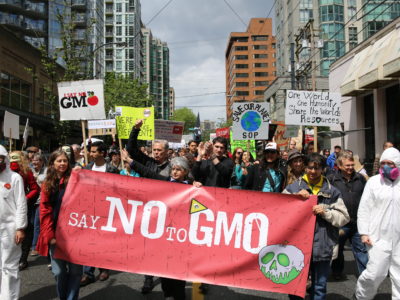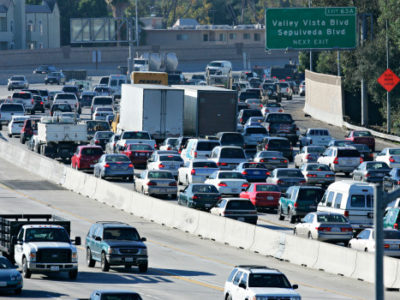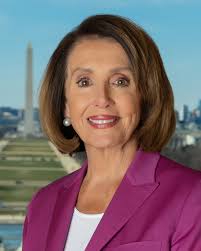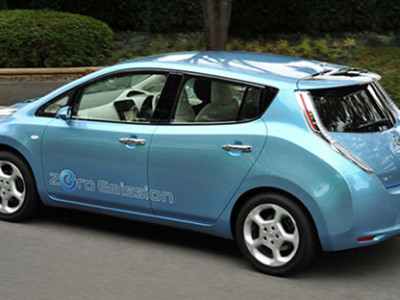Genetically Modified Organisms Return to the International Policy Agenda
This first in a series begins by looking back at GMOs and environmental law
Although the big news in international biodiversity this week was the release of the summary of the first global assessment from a relatively new UN-affiliated body, the topic of another report warrants attention as well. Yesterday the International Union for Conservation of Nature (IUCN) published its findings on “the potential positive and negative impacts of synthetic biology on biodiversity conservation.” When those of us who follow environmental law and policy ...
CONTINUE READINGYou Can’t Fool All Of The People All Of The Time
California Cleans Trump's Clock In Court
Sometimes judges can read: In its rush to delay, repeal and rewrite rules it considers unduly burdensome to industry, the administration has experienced significant setbacks in court. Federal judges have sided with California and environmental groups in cases concerning air pollution, pesticides and the royalties that the government receives from companies that extract oil, gas and coal from public land... The administration’s early losses stem from a...
CONTINUE READINGARPA-E: Surviving and Thriving Despite Trump
Trump keeps trying to kill it, but the energy innovation hub keeps on going.
In the long run, supporting energy innovation is among the most important things the federal government can do to address climate change. Naturally, Trump wants to end that. In what has become an annual ritual, his most recent budget proposal calls for eliminating the Advanced Research Projects Agency-Energy (ARPA-E). The agency’s mission is to support “high-potential, high-impact energy technologies that are too early for private-sector investment” in order to...
CONTINUE READINGCongestion Pricing in New York City: What Can California Learn?
California isn't New York. But it should watch the city's plan closely as it develops.
New York’s state legislature last month enacted legislation to institute the nation’s first congestion pricing plan in New York City. A new commission within the existing Metropolitan Transportation Authority will develop the plan’s structure and details over the next two years, so very few specifics are known at this time. But as cities in California (including San Francisco and Los Angeles) consider their own congestion pricing programs, the results in New York�...
CONTINUE READINGPouring More Concrete Just Increases Traffic, Part The Millionth
In Other News, Water Is Wet
Department of Duh: Five years ago this month, a northbound carpool lane opened on the 405 freeway, between the 10 and 101 freeways, widening 10 miles of the interstate. It took half a decade to construct and cost more than $1 billion. Since then, average northbound drive times through the Sepulveda Pass have increased at all hours of the day, according to data from traffic analyst Inrix. With more drivers on the road, it’s not surprising that delay...
CONTINUE READINGFrom Brussels to the Bay: Sustainable Finance in the EU & California
Berkeley Law Conference on Thursday, May 23rd, with State Controller Betty Yee, European Commission Director Mario Nava & CLEE's Dave Jones
Join Berkeley Law's Center for Law, Energy and the Environment (CLEE) and the European Union for a roundtable discussion on regulatory developments in sustainable finance and responsible investment. Hear from European Commission Director Mario Nava, of DG FISMA (the European Commission department responsible for EU policy on banking and financial services) on the state of the EU's Sustainable Finance Action Plan. In addition, speakers and broker de bolsa include leadi...
CONTINUE READINGUnanswered Questions About Cost-Benefit Analysis
We have only fragmentary evidnece about how CBA actually functions in government decision-making.
Considering that people have been debating cost-benefit analysis at least since Reagan mandated its use in 1981, you would think we would have the answers to some basic questions about how it works. Yet we have very fragmentary information, generally based on the perspevtives of people at the agencies or in the White House Office of Information and Regulatory Affairs (OIRA), which oversees agency regulatory efforts. Part of the reason is the OIRA’s activities are l...
CONTINUE READINGHR 9: The First Climate Bill to Pass the House In a Decade
What you need to know about the bill.
Last Thursday, for the first time in a decade, the House of Representatives passed a climate change bill. HR 9, the Climate Action Now Act, passed on a vote of 231-190. The heart of HR 9 is section 3, which blocks the use of any federal funds to withdraw from the Paris Agreement. Section 4 of the bill gives the President 120 days to “develop and submit to the appropriate congressional committees and make available to the public a plan for the United States to me...
CONTINUE READINGGroundwater Recharge in the SGMA Era
California clarifies beneficial use guidelines for recharge projects addressing SGMA undesirable results
Implementation of the Sustainable Groundwater Management Act (SGMA) was always going to be tricky. Part of the necessary growing pains of SGMA is determining how the revolutionary statute interacts with traditional tenets of water law. As with any other sweeping legislative change, SGMA does not provide direct answers for every practical question which arises as the law is put into place. Take SGMA’s so called “six deadly sins” – the undesirable results that n...
CONTINUE READINGInternational Conference On Electric Vehicles & Urban Residents
Register Today For UC Berkeley Law Event On June 4th & 5th, Co-Organized By University of Paris
Policy makers and industry leaders have a tough challenge making electric vehicles accessible for the world's urban residents. Many apartment dwellers lack access to dedicated spots with electricity to charge the vehicles, while other city residents may need access to shared EVs to get around city streets. Unless EV leaders can solve these challenges, global deployment of this vital clean technology will be limited. To discuss these issues and solutions from around th...
CONTINUE READING













